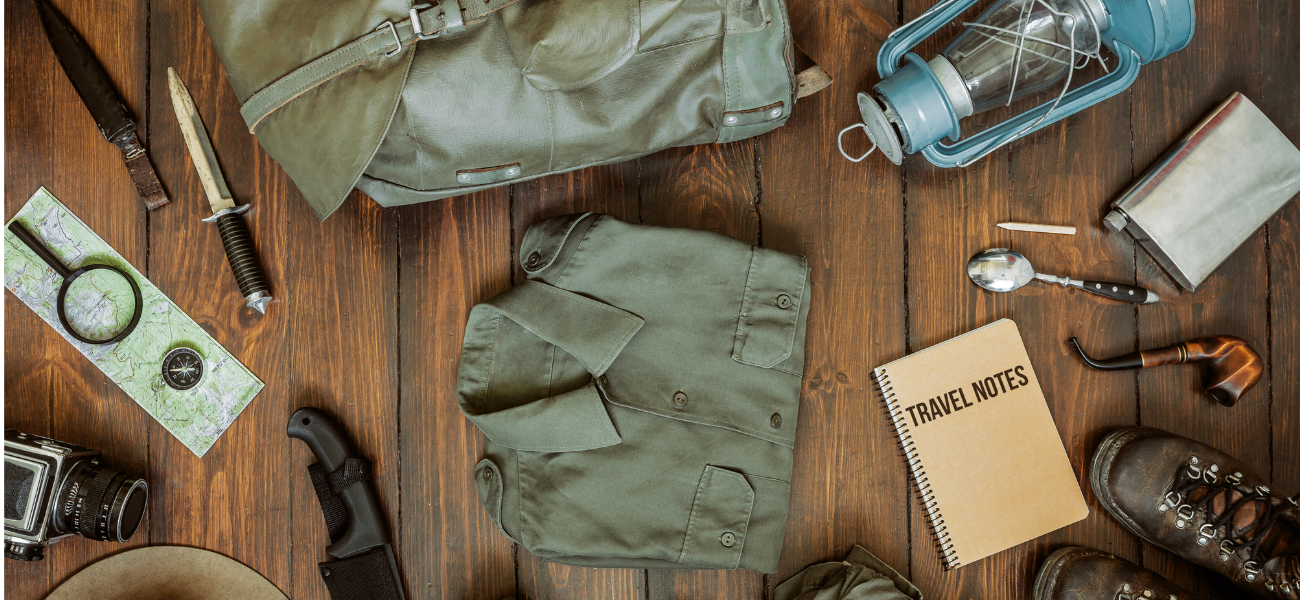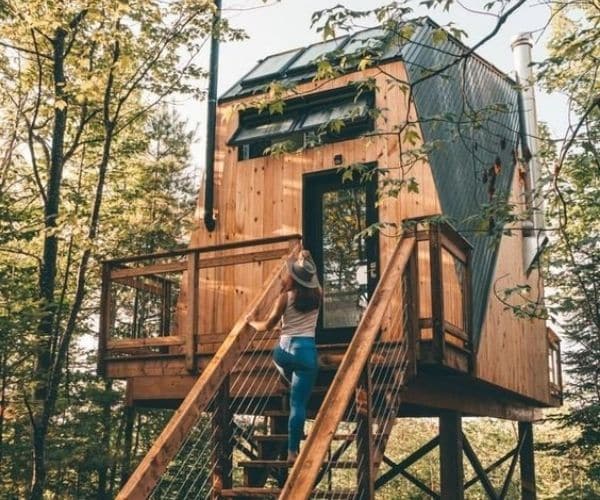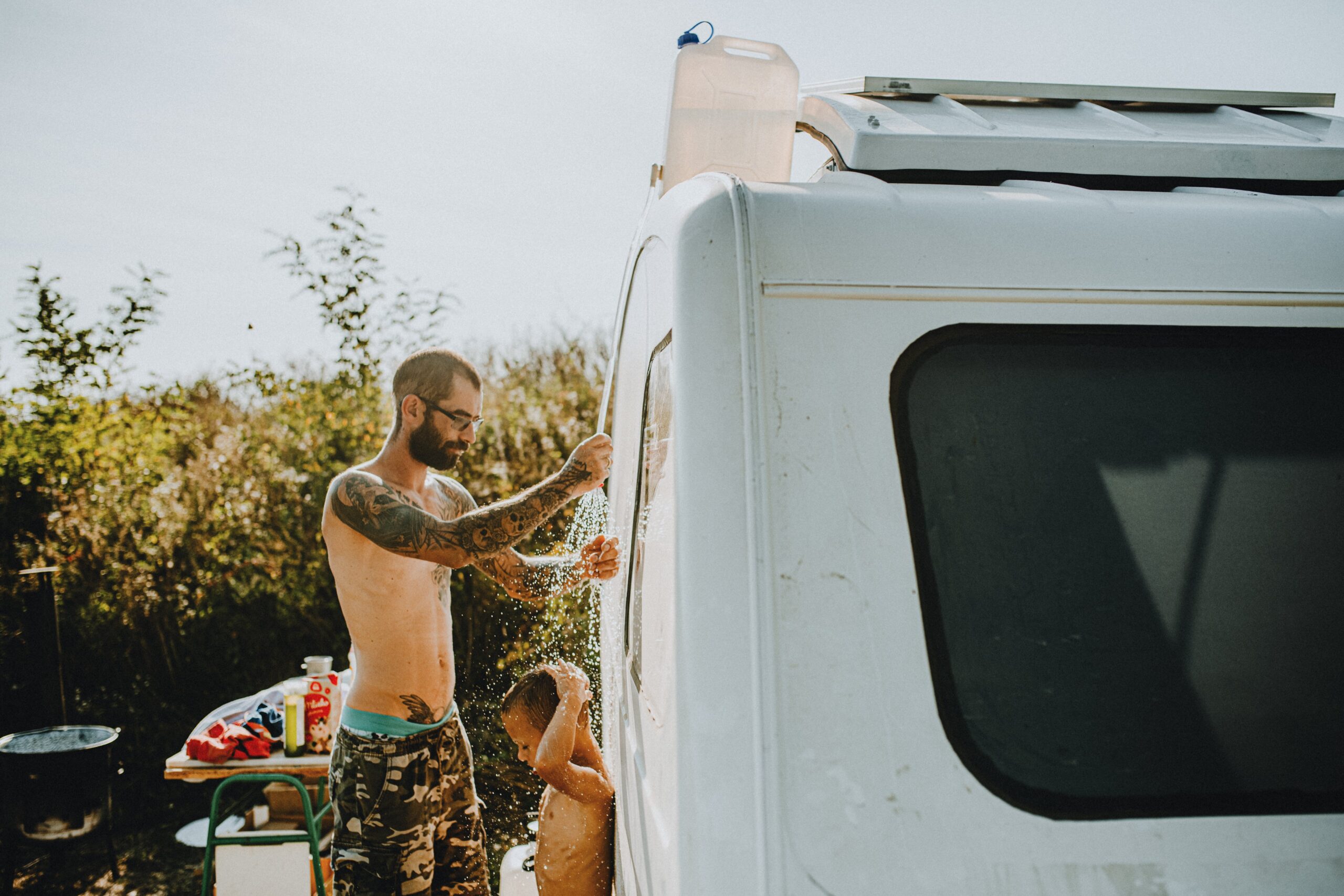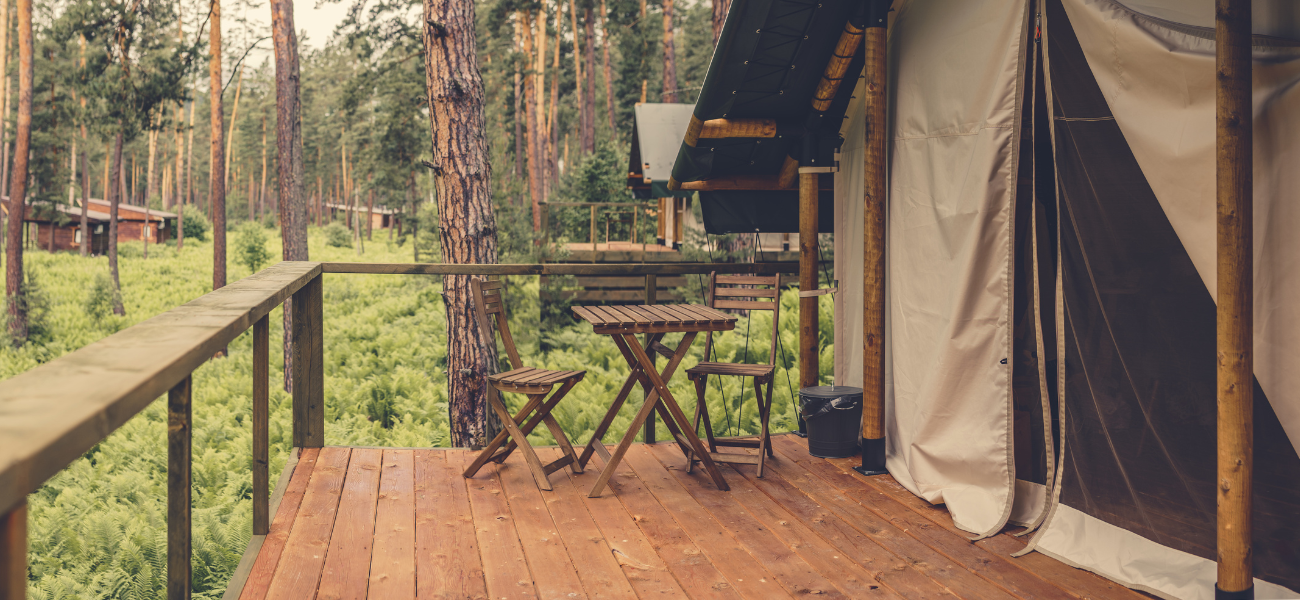Embarking on a camping journey is as much about adventure as it is about understanding the camping lingo. Whether you’re a novice or an experienced camper, mastering these 50 words about camping will enhance your outdoor adventures. Come with us and dive into essential camping vocabulary so that you’re well-prepared and informed for your next trip.
Camping Gear and Equipment Vocabulary
1. Bivouac (Bivy): A small, lightweight, and temporary shelter used in camping.
2. Guy Lines: Cords attached to a tent for stability, especially in windy conditions.
3. Footprint: A groundsheet placed under a tent to protect it.
4. Dutch Oven: A heavy cooking pot used over a campfire.
5. Tarp: A large piece of waterproof material used for protection against elements.
6. Bear Canister: A bear-proof container to store food in the wilderness.
7. Headlamp: A wearable, hands-free light source.
8. Fire Ring: A designated area for safely containing a campfire.
9. Hammock: A fabric sling suspended between two points for sleeping or resting.
10. Mummy Bag: A snug, form-fitting sleeping bag for warmth.
11. Packable: Gear that can be easily compacted for transportation.
12. Ripstop: A fabric resistant to tearing, used in camping gear.
13. Spork: A utensil that is a combination of a spoon and fork.
14. Trangia: A brand of portable camping stoves.
15. Hydration Pack: A backpack with a built-in water reservoir.
16. Jetboil: A brand of compact cooking systems for campers.
17. Gaiters: Protective coverings for the lower legs and shoes.
18. Pith Helmet: A lightweight helmet for sun protection.
19. Quick-Dry: Fabric that dries rapidly, ideal for outdoor activities.
20. Ultralight: Gear designed to be as light as possible.
21. Vestibule: An enclosed area outside a tent door for storage.
Camping Words Related to Nature and Environment
1. Quartzite: A hard, metamorphic rock often found in hiking trails.
2. Underbrush: Low-growing vegetation in forested areas.
3. Xeriscaping: Landscaping that promotes water efficiency.
4. Flora and Fauna: The plants and wildlife specific to a camping area.
5. Microclimate: The climate of a very small or restricted area.
6. Nocturnal: Referring to plant or animal life active during the night.
7. Scat: Animal droppings found in nature.
8. Topography: The arrangement of physical features of an area.
9. Windward: The side of a hill or mountain facing the wind.
Navigation and Exploration Camping Lingo
1. Altimeter: A device used to measure altitude.
2. Backcountry: A remote and undeveloped area for wilderness camping.
3. Carabiner: A metal loop with a spring-loaded gate for securing gear.
4. Dry Bag: A waterproof bag that keeps items dry.
5. Eco-Dome: A sustainable, dome-shaped shelter.
6. Isotherm: A line on a map connecting points of equal temperature.
7. Knots: Methods of tying ropes or cords in camping.
8. Orienteering: The skill of navigating using a map and compass.
9. Ranger Station: A facility where rangers provide information and assistance.
10. Yield: To give right of way on trails.
11. Zigzag Trail: A trail with sharp turns for navigating steep areas.
Camping Practices and Ethics
1. Cat Hole: A small hole dug for human waste in the wilderness.
2. Kindling: Small sticks or twigs used to start a fire.
3. Layering: Wearing multiple layers of clothing for adaptable insulation.
4. Ventilation: The process of circulating air through a tent.
5. Waypoint: A reference point used for navigation.
6. Zero Trace: A principle of leaving no environmental impact when camping.
7. Leave No Trace: Outdoor ethics promoting conservation.
8. Xenology: The study of extraterrestrial environments, sometimes referenced in extreme camping.
Wrap Up
There you go! That’s the basic camping vocabulary guide. Each of the 50 words about camping, from the practical to the peculiar, is a piece of the larger puzzle of your outdoor adventure. Whether you’re a novice camper or a seasoned outdoorsman, you’re one step closer to enjoying the wilderness with more confidence. Now, head over to Campsaround and book your next camping adventure.
Happy camping!





